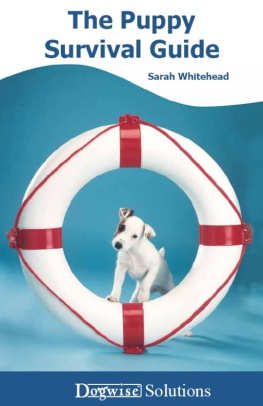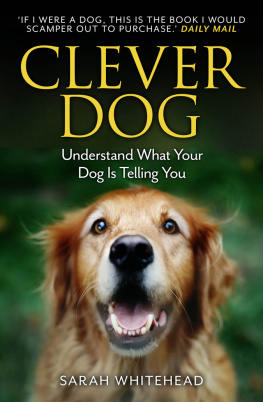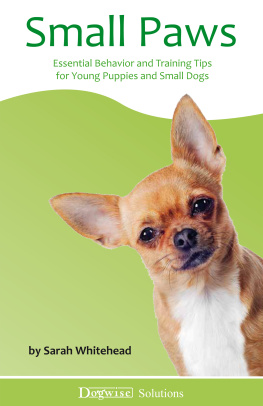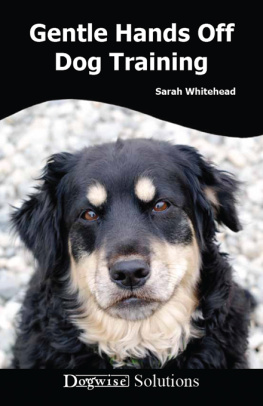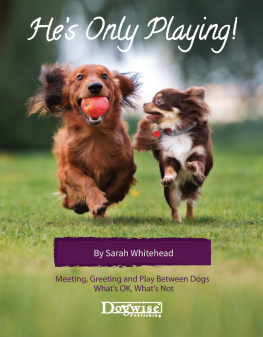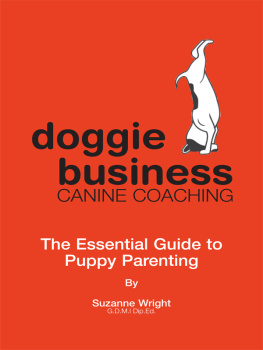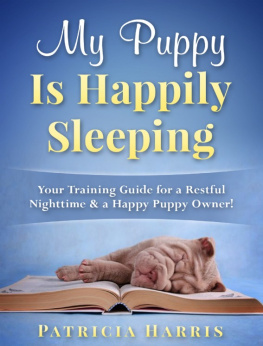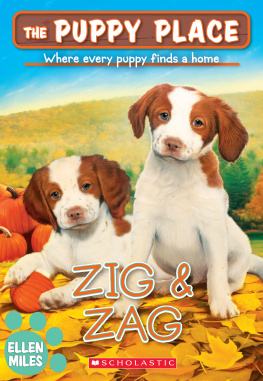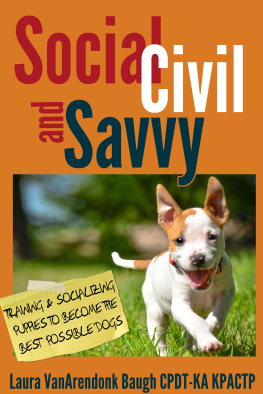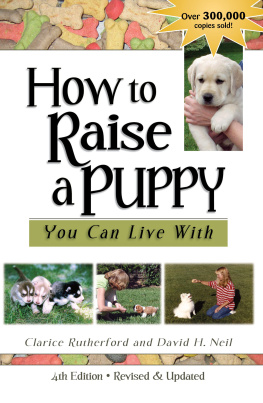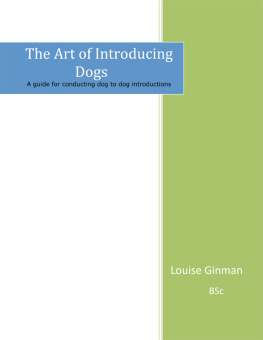Dogwise Solutions
The Puppy Survival Guide
Sarah Whitehead
Dogwise Publishing
A Division of Direct Book Service, Inc.
403 South Mission Street, Wenatchee, Washington 98801
1-509-663-9115, 1-800-776-2665
www.dogwisepublishing.com / info@dogwisepublishing.com
2011 Sarah Whitehead
ISBN: 978-1617810350
All rights reserved. No part of this book may be reproduced or transmitted in any form or by any means, electronic, digital or mechanical, including photocopying, recording or by any information storage or retrieval system without permission in writing from the publisher.
Limits of Liability and Disclaimer of Warranty:
The author and publisher shall not be liable in the event of incidental or consequential damages in connection with, or arising out of, the furnishing, performance, or use of the instructions and suggestions contained in this book.
Printed in the U.S.A.
Sarah Whitehead, BA(Hons), Msc. pet behavior specialist, author and internationally recognized speaker, lives and works in England. Sarah is a member of the APBC (Association of Pet Behavior Counsellors), APDT (Association of Pet Dog Trainers) and Director of Alpha Education, an organization offering accredited and practical courses in canine behavior and training. She specializes in aggression problems, puppy development, canine body language and clicker training. Sarah lives in Berkshire, UK with her three dogs. To find out more about accredited courses in canine behavior and training in England, or for more details about her training philosophy, please visit www.cleverdogcompany.com.
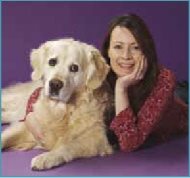
The Puppy Survival Guide
Sarah Whitehead
Table of Contents
How to increase your odds of surviving
Your new puppy is home, and hes cute, cuddly and fluffy. The perfect petor is he?
All puppies bark, bite, go to the bathroom in the wrong place and know just how to get you wound up!
This booklet is designed to tell you simply and quickly how to survive those first few weeks. After all, puppies dont come with a manual, do they?
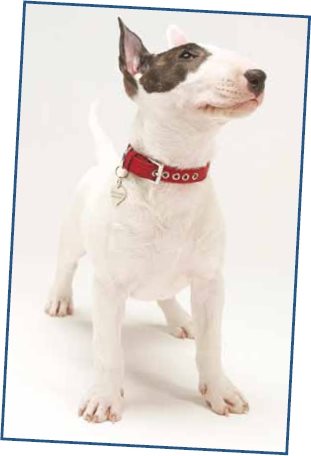
Between five and twelve weeks of age, puppies form strong associations with all sorts of people, places and things. Your job is to make sure those early experiences are good ones for your puppy.
A dog who lacks socialization with people or other dogs at this early stage is more likely to develop behavioral problems as an adolescent. It is essential at this stage getting your puppy out and about and meeting and mixing with as many different people and other dogs as possible.
Puppies need to be vaccinated against certain diseases before they can go safely out and about. These vaccinations are usually completed by the age of ten to twelve weeks. Vets agree that its vital to balance the importance of socialization with your puppys health, so ask his advice on how much risk there is in your local area. In the meantime:
Mixing with other dogs that are fully up-to-date with their vaccinations is safebut avoid unvaccinated dogs or areas where they might go.
Carry your pup in new areas until he or she is fully protected this offers socialization while minimizing the risk of infection.
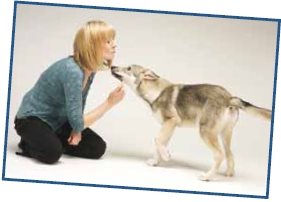
Your pups social checklist
In one week, aim to tick off as many of these social encounters as you can:
New people |  |
Children |  |
Adult dogs |  |
Other puppies |  |
Person wearing a hat |  |
Person wearing glasses |  |
Person wearing a crash helmet |  |
Person on crutches |  |
Person in uniform |  |
Person riding a skateboard |  |
New friends
Social experiences should be positive and enjoyable for your puppy, so seek out friendly people and dogs for your pup to meet and greet.
Great places to socialize are the mall, pet-friendly stores and restaurants, schools and the homes of friends.
Dogs dont come into the world knowing what vacuum cleaners and hair dryers are. They need to learn about their environment, in order to cope with it and accept itand this needs to happen as soon as possible.
Family life can be challenging for dogsthere are so many things that a new puppy needs to become familiar with. He will need to be exposed many times to the sound of traffic, the washing machine or the telephone before he will ignore them. A puppy also needs to know that different sensations underfoot, such as rubber matting, carpet and wood are all safe to stand on.
Puppies vary in their ability to cope with new sights, sounds and smells. While your pup might seem confident at home, the outside world can be far more daunting. The rule with new encounters is that all humans need to be calm and ignore anxiety or fearful behavior as much as possible. Instead, reward brave, confident behavior in order to help your puppy overcome his worries.
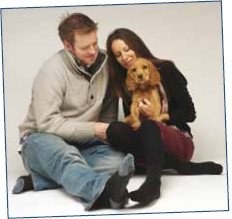
Familiarization check-list
Make sure your puppy is so confident that he can ignore all these:
Vacuum cleaner
Washing machine
Hair dryer
Telephone ringing
Food processor noise
Aerosol sprays
Carpet/Wooden floors
Stairs
Elevators
Mop or broom being used
TV
Radio
Plastic bags being shaken out
Collar and lead taken on and off
Traffic noise
Bicycles
Balloons
Stress immunization
Bear in mind that puppies need to be exposed to many different kinds of environments, particularly those that you may visit in the future. This means that trips to the countryside, sea, river or forest may be on the cards if you live in a town or cityand vice versa. Try to be as creative as possible.
Exposing your pup to as many different positive experiences as you can helps to stress immunize your pup for later life, and reduces the risk of behavior problems.
Dogs dont understand English! Instead, they need to learn what our words and gestures mean. The sooner you start training your pup, the better.
Good training is like learning a foreign languageit should be fun and easy, not stressful and difficult. Clicker training has developed to allow you and your puppy to communicate during training. It tells your puppy exactly which behavior earned the reward.
Next page
